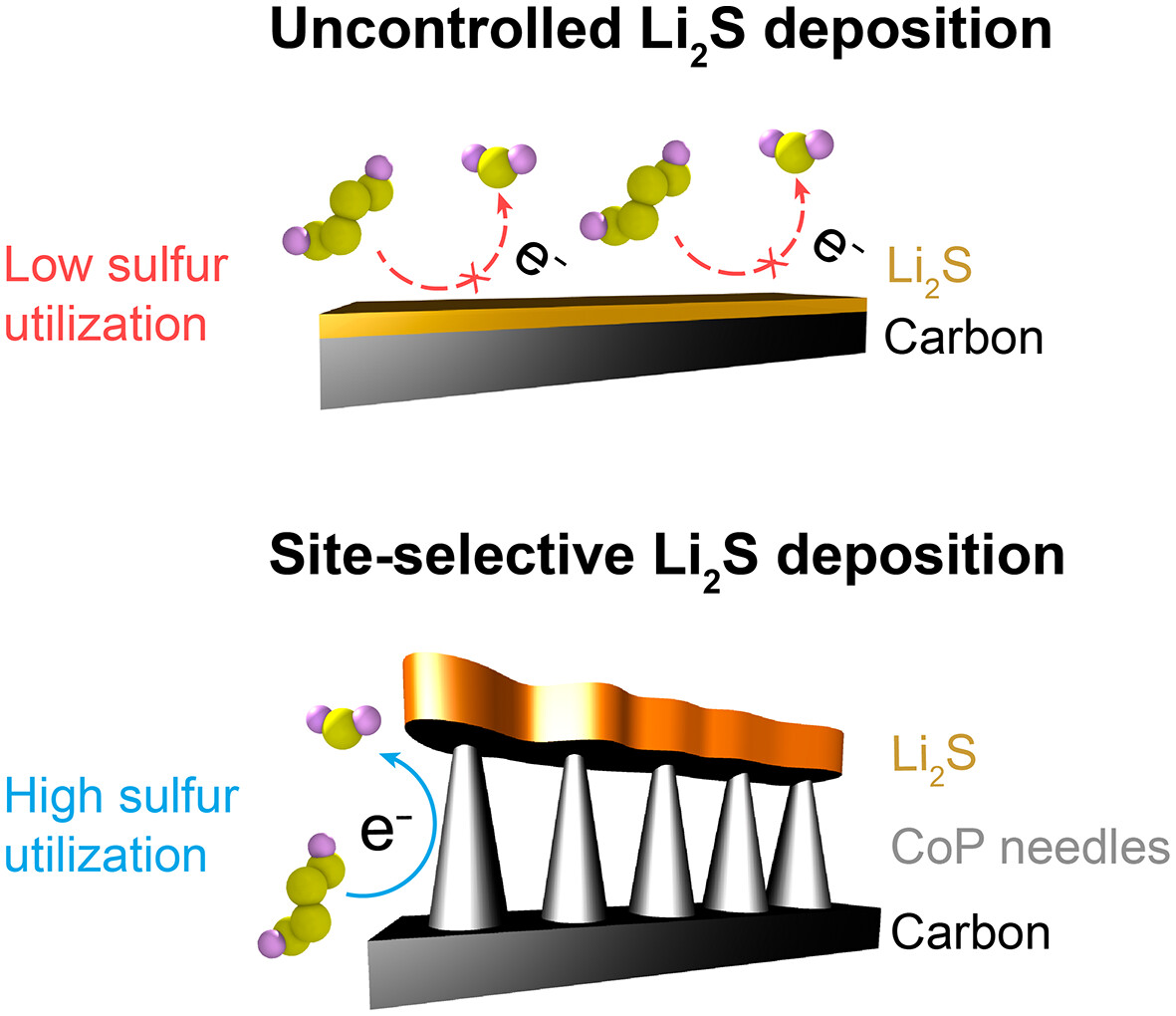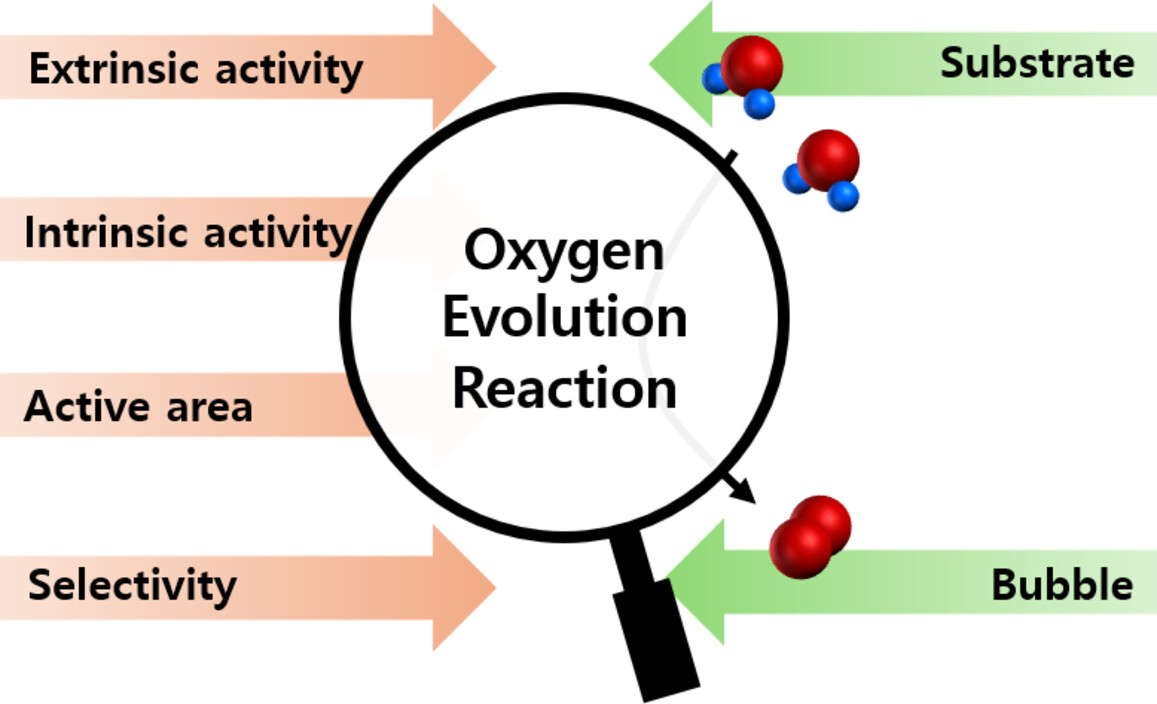Articles
A review of recent developments in the design of electrolytes and solid electrolyte interphase for lithium metal batteries
- First Published: 23 October 2024
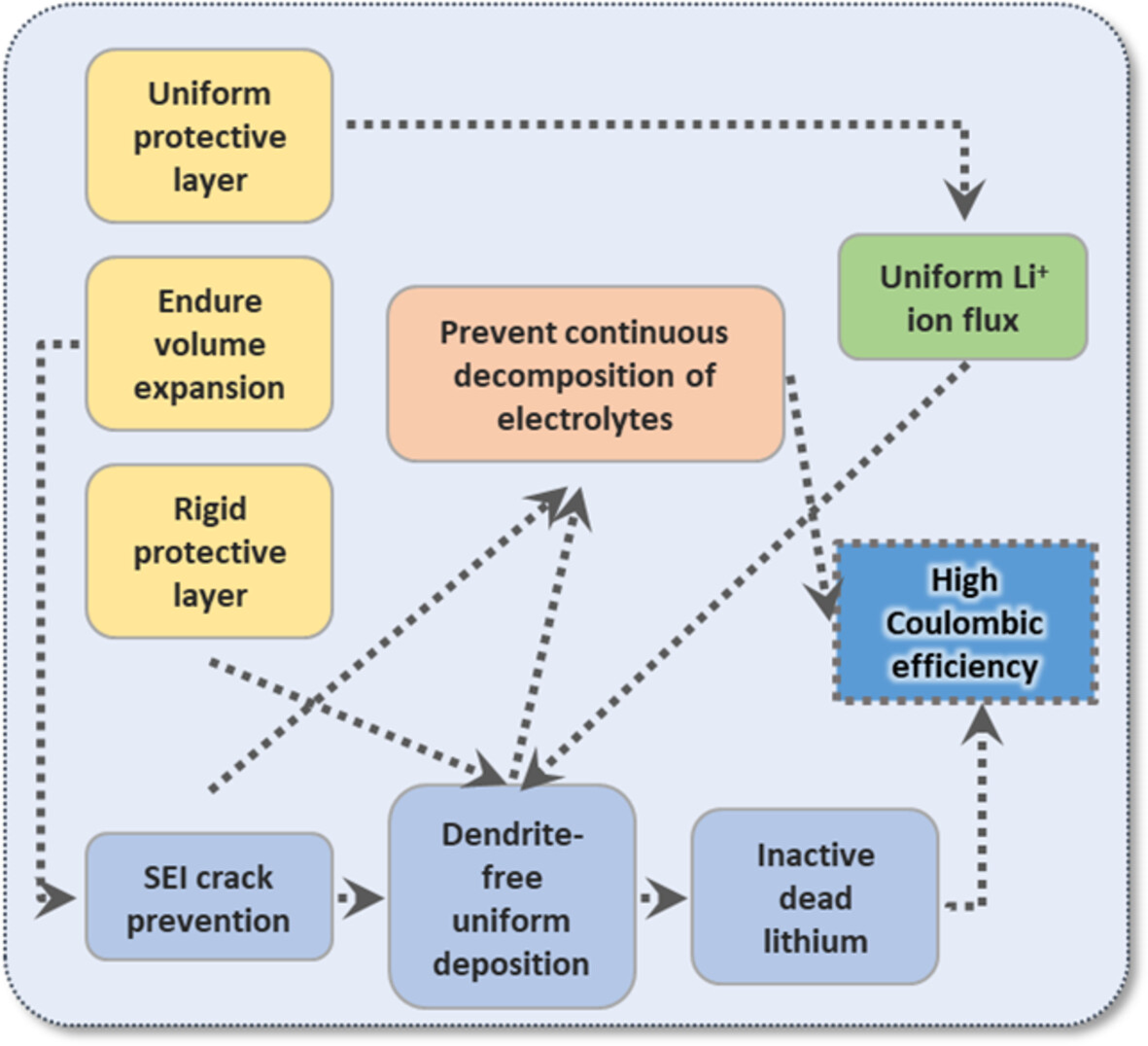
With various types of lithium salt, solvents, and additives, the structure and components of solid electrolyte interphase (SEI) can be designed. The comprehensive properties of SEI such as high mechanical stability, electronic insultation, and high ionic conductivity are closely related to uniform lithium deposition and side reaction prevention resulting in high Coulombic efficiency.
Addressing electrode passivation in lithium–sulfur batteries by site-selective morphology-controlled Li2S formation
- First Published: 22 August 2024
Advanced approach for active and durable proton exchange membrane fuel cells: Coupling synergistic effects of MNC nanocomposites
- First Published: 09 October 2024
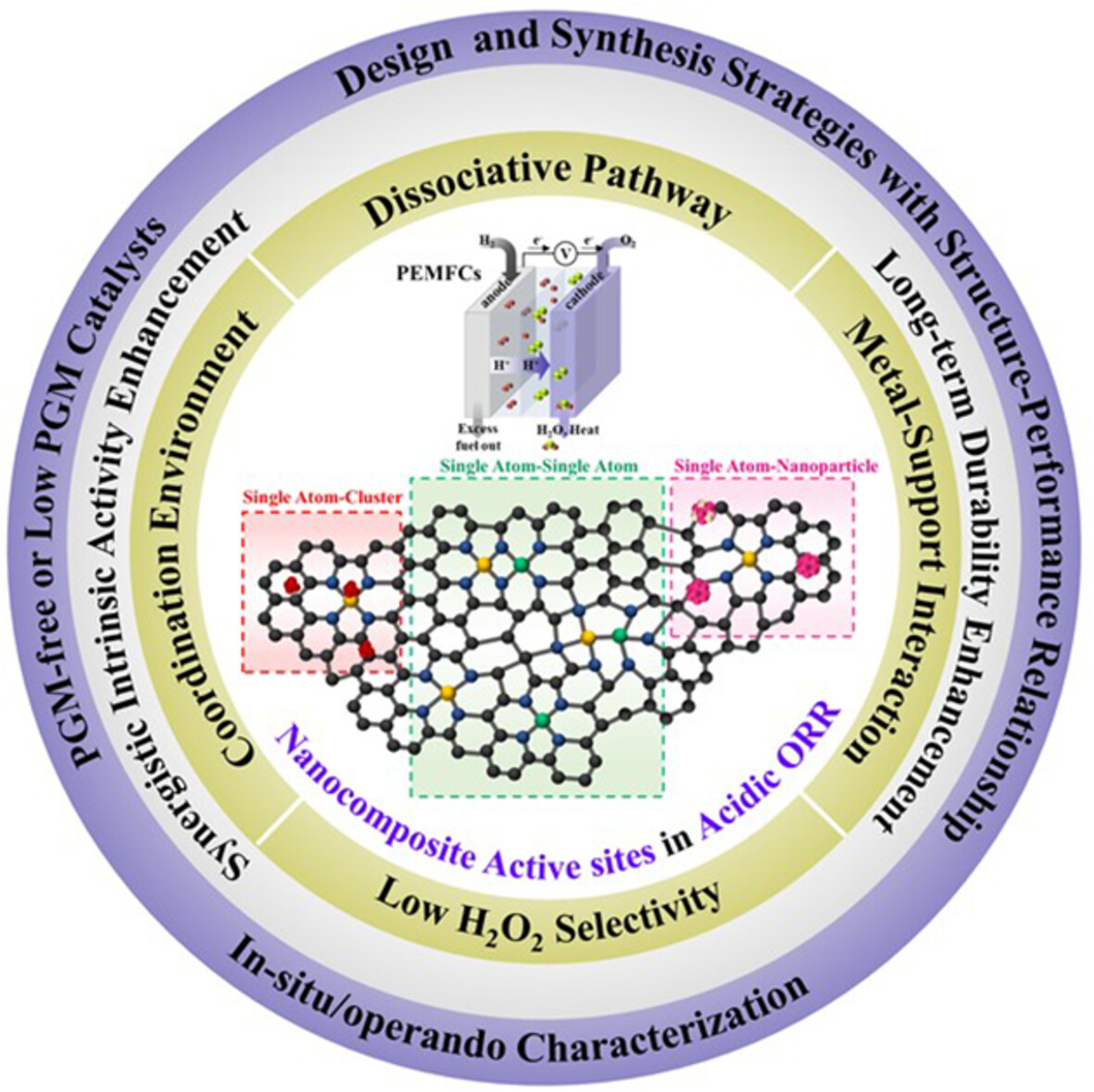
This review discusses the structure–performance relationships of MNC nanocomposite electrocatalysts for the acidic oxygen reduction reaction (ORR) in proton exchange membrane fuel cells, highlighting the synergistic intrinsic activity/durability enhancements caused by the combination of single atoms, clusters, and nanoparticles with MNC catalysts. Examples of in situ/operando analysis are presented, providing insights into the underlying mechanisms/phenomena. ORRs, proton exchange membrane fuel cells, atomically dispersed catalysts, nanocomposites, coupling synergistic effects.
Recommended practice for measurement and evaluation of oxygen evolution reaction electrocatalysis
- First Published: 17 September 2024
Electrospun Carbon Nanofibers for Clean Energy Applications: A Comprehensive Review
- First Published: 06 February 2025
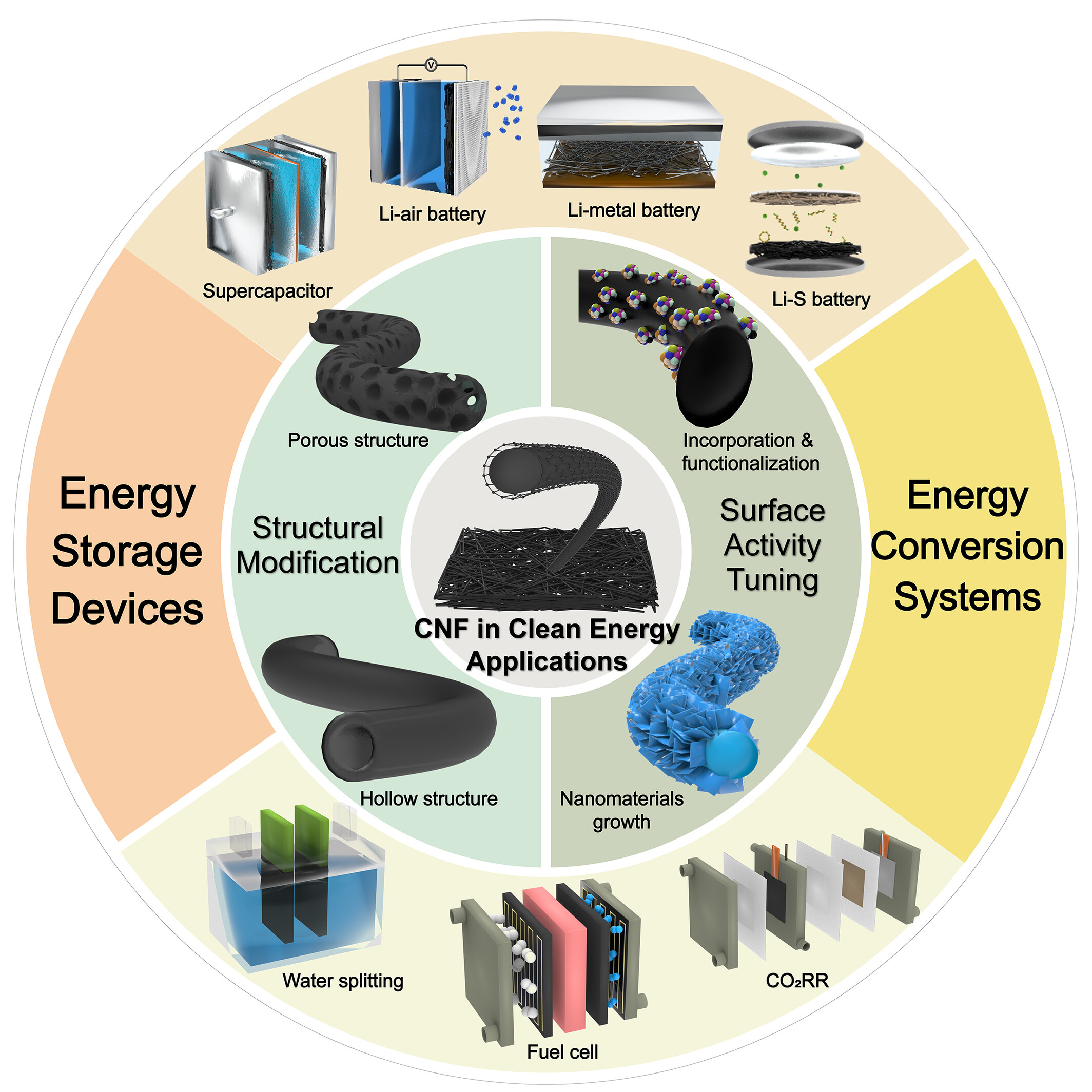
This review provides perspectives on design principles of electrospun carbon nanofibers (CNFs) with structural modifications and surface activity tuning for energy storage and conversion applications. Variety of approaches can be applied on both before and after carbonization stage to induce structural and surface property changes. Overall, this review guides researchers in developing CNFs for sustainable energy solutions.
Efficient and spectrally stable pure blue light-emitting diodes enabled by phosphonate passivated CsPbBr3 nanoplatelets with conjugated polyelectrolyte-based energy transfer layer
- First Published: 29 September 2024
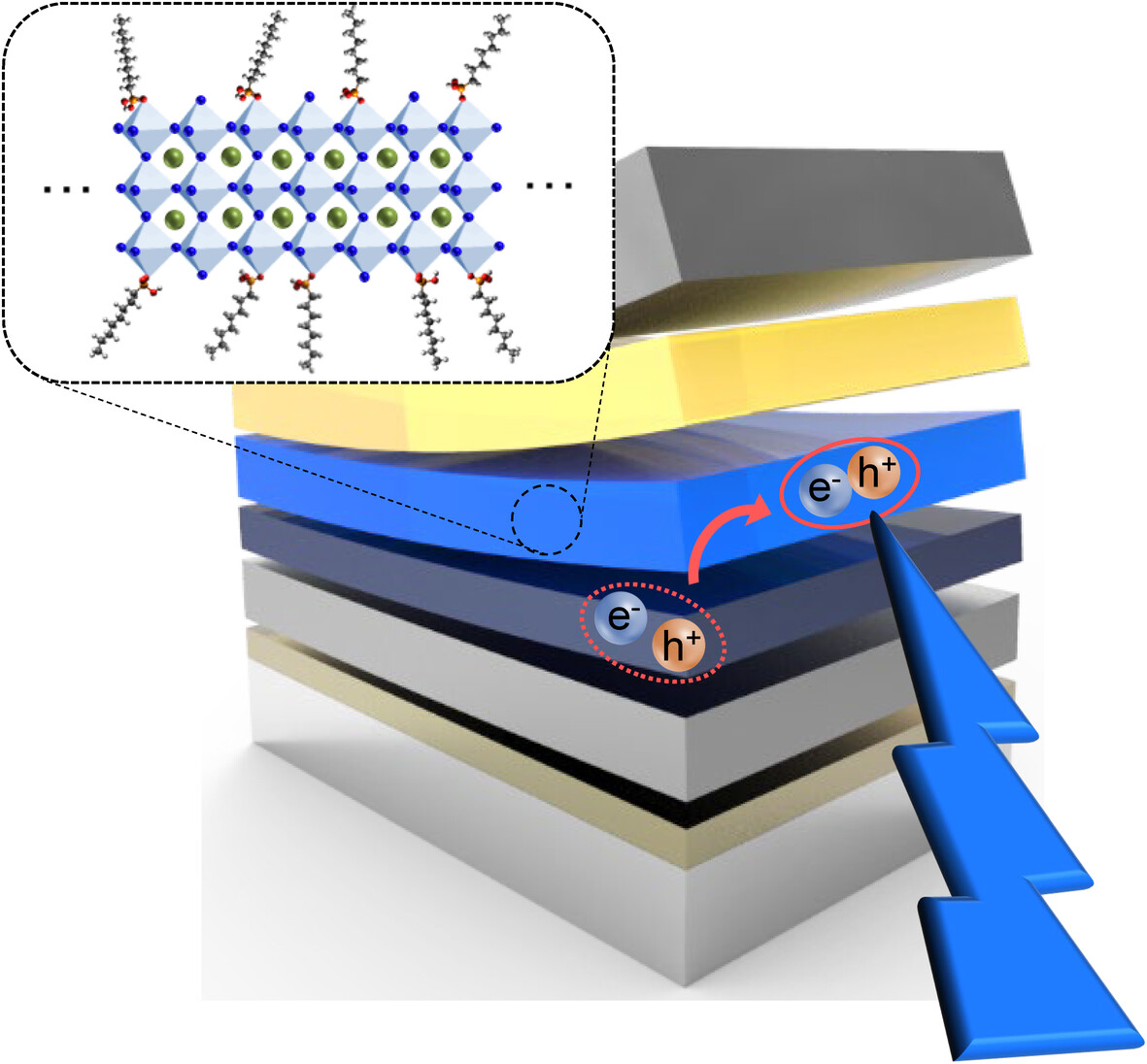
Short-chain octyl-phosphonate capped CsPbBr3 nanoplatelets were successfully synthesized using a room temperature method. The introduction of a conjugated polyelectrolyte material as a hole transport layer facilitated energy transfer to the nanoplatelets. The resulting LEDs emit pure blue light and maintain this emission without any spectral peak shift, even under conditions where the device undergoes degradation due to joule heating.
Enhancing performance of two-step fabricated perovskite solar cells with sulfonium triflate-based additive
- First Published: 31 March 2024
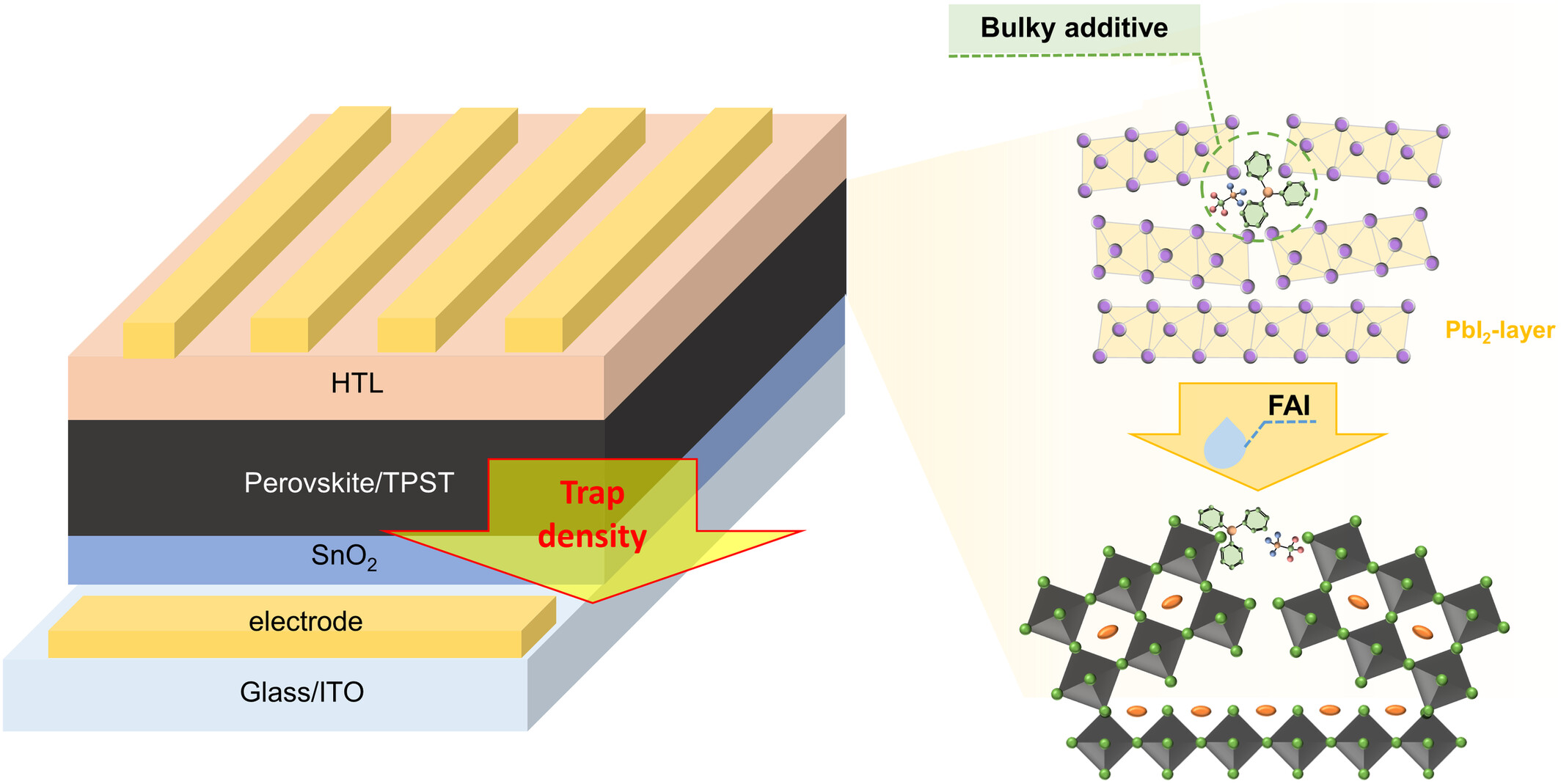
A bulky sulfonium-based additive is incorporated into the array of the PbI2 structure, facilitating the FAI reaction in two-step deposition and inducing an alternation of growth in the perovskite film that has large grains with fewer defects. As a result of the additive effect, we achieved a PCE of 23.88%.
Exploring Gas/Solid Interface Reactions of Solid Oxide Cell Electrodes via Model Thin-Film Systems
- First Published: 20 March 2025
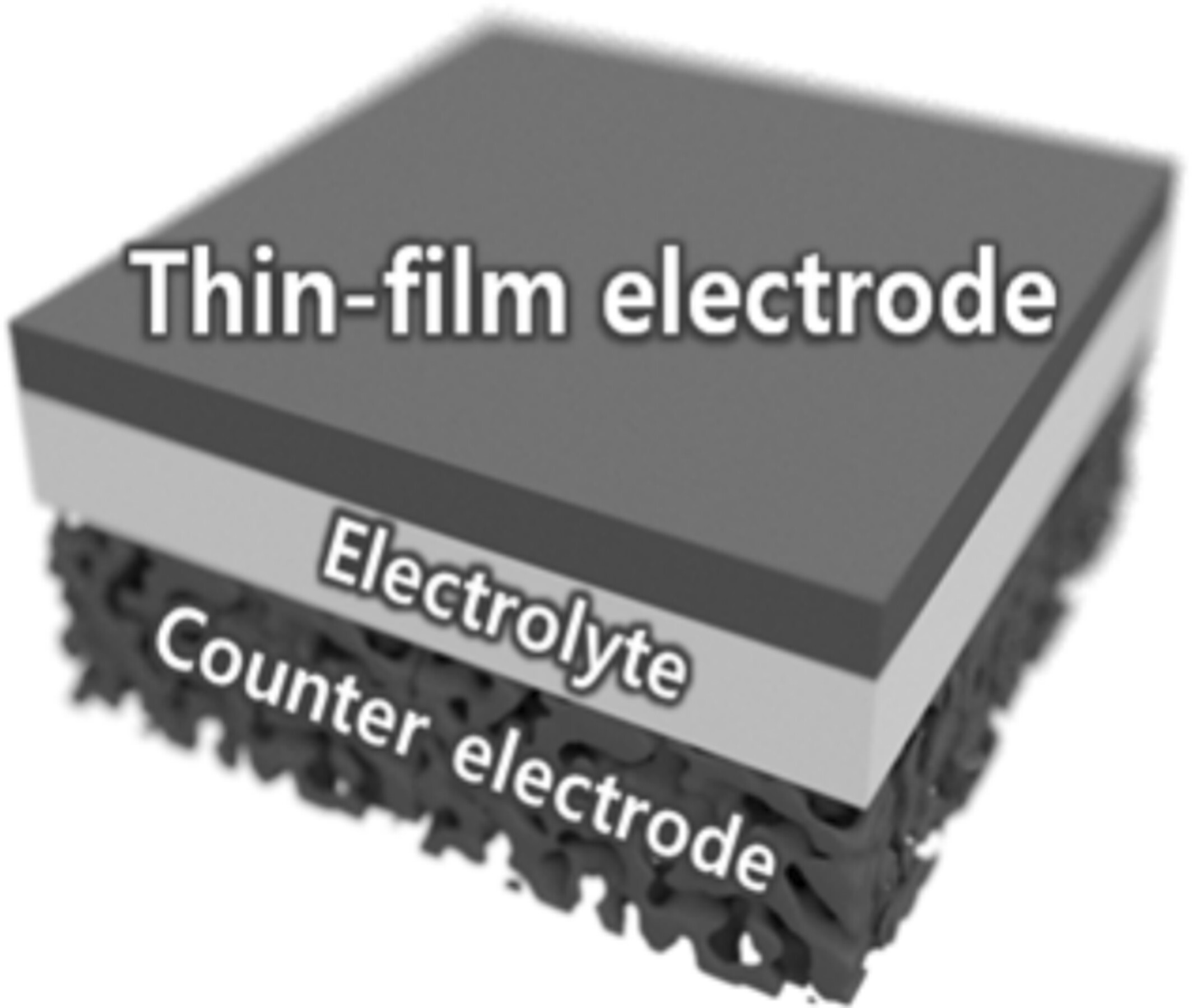
Thin-film-based model systems provide unique insights due to their ability to emulate the complex phenomena at SOC electrode interfaces under controlled conditions. This review highlights the fundamental research, utilizing thin films to dissect interface dynamics in SOCs, advocating for their crucial role in advancing SOC technology and understanding.
Impact of conducting agents on sulfide and halide electrolytes in disordered rocksalt cathode-based all-solid-state batteries
- First Published: 12 November 2024
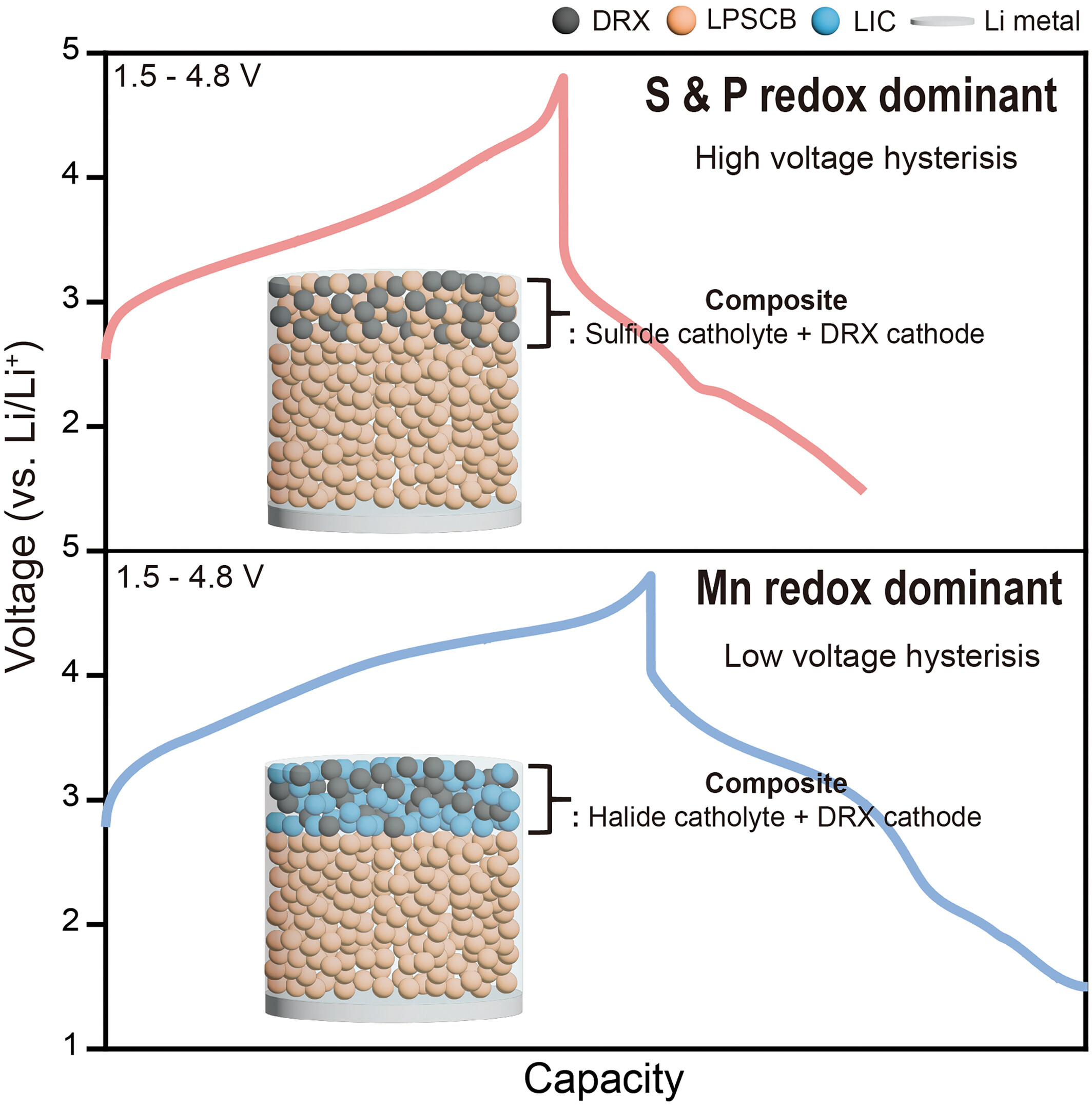
This research investigates the integration of Mn-based disordered rock-salt cathodes in all-solid-state battery systems operating from 1.5 to 4.8 V. We discuss the effects of high carbon contents required for the DRX cathodes on electrochemical performance, comparing halide and sulfide solid electrolytes. It provides new insights into the interplay among solid electrolytes, cathodes, and conductive additives.
In-situ photo-polymerized elastomeric composite electrolytes containing Li6.4La3Zr1.4Ta0.6O12 particles for stable operation in lithium metal batteries
- First Published: 13 November 2024
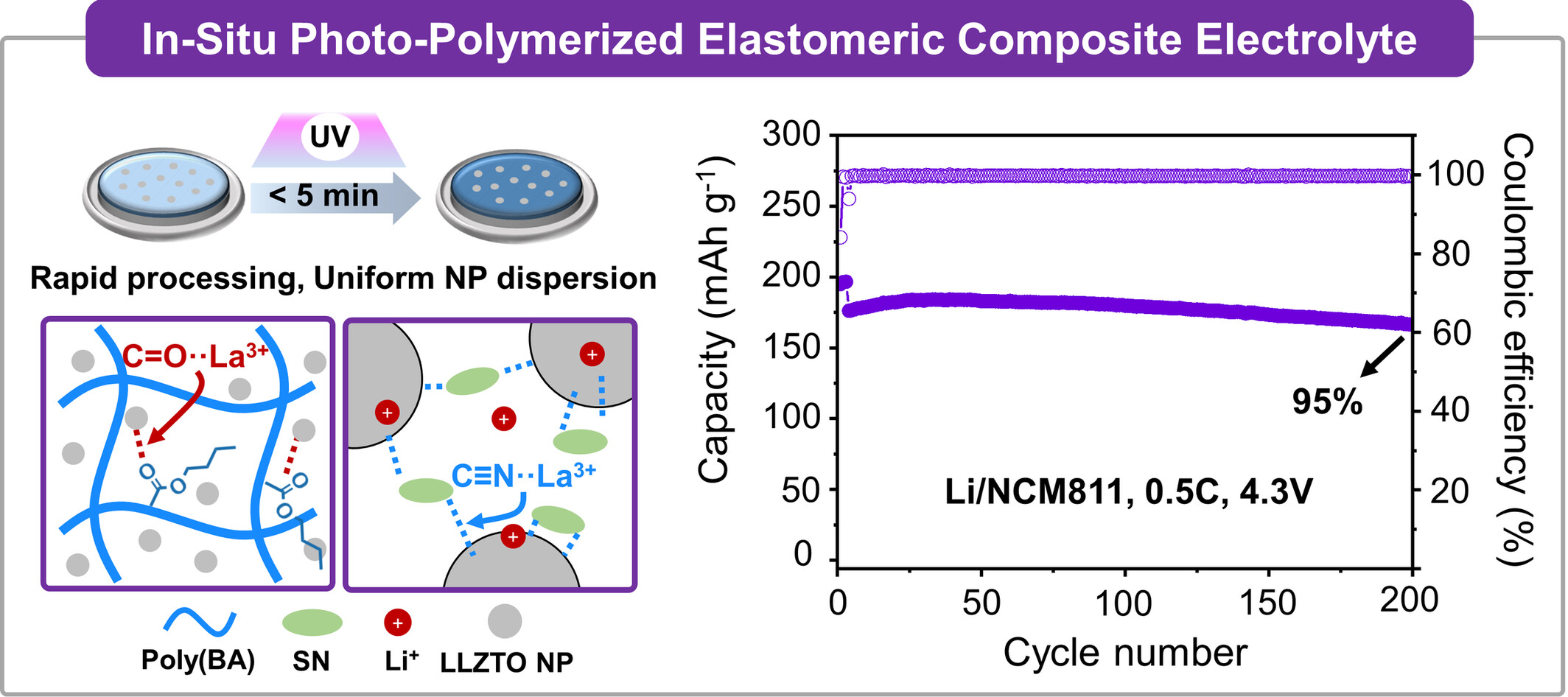
The in-situ photo-polymerized composite polymer electrolyte (CPE) exhibits high ionic conductivity, excellent elasticity, and superior adhesion properties with uniform dispersion of LLZTO nanoparticles. This CPE achieves excellent cycling performance of Li/NCM811 full cell, maintaining a capacity retention of 95% after 200 cycles with a specific capacity of 166.7 mAh g−1 under 0.5C.
Multiscale Materials Imaging and Spectroscopy for Battery Materials
- First Published: 06 May 2025

Key physical and chemical phenomena in battery materials are illustrated across multiple length scales, from atomic to device level. Corresponding characterization techniques are aligned with each regime, showing how structural, thermal, and interfacial changes affect performance. This multiscale framework underscores the importance of integrated imaging for next-generation battery diagnostics and design.
Unlocking fast-charging capabilities of lithium-ion batteries through liquid electrolyte engineering
- First Published: 20 June 2024
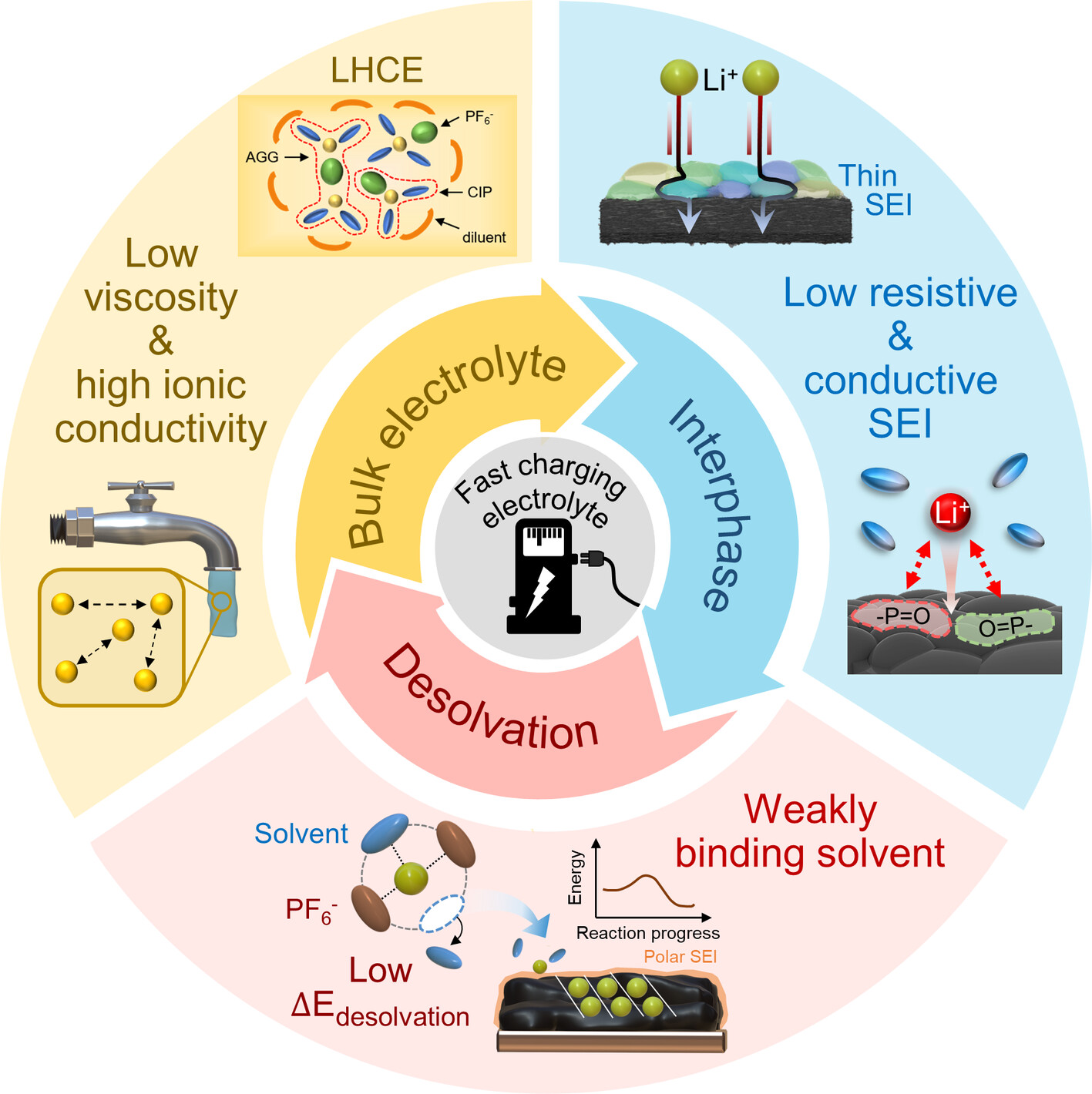
The fast-charging performance of lithium-ion batteries can be achieved by electrolytes that provide well-connected ion channels with homogeneous Li+ flux and solvents with moderate solvating power to facilitate desolvation. Furthermore, an ionically conductive solid electrolyte interphase (SEI) plays a crucial role in reducing the desolvation energy barrier and forming a stable SEI with a long lifespan, particularly at high charge rates.




